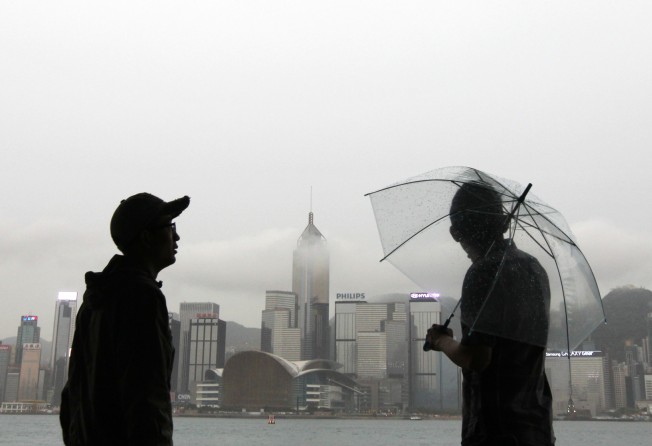Constitutional crunch crimps Hong Kong competitiveness
For the administration to get on with real business,the city's leaders should learn to live with the shortcomings in itspolitical system

If fools rush in where angels fear to tread, then a fool I must be as I plunge into the Hong Kong controversy on constitutional reform.
One reason is because of a book I wrote with Michael Enright and Edith Scott, The Hong Kong Advantage, in 1997 on the city's competitiveness.
In 2007, the Bauhinia Foundation asked Enright and I to revisit the book 10 years on to examine the competitive changes that had occurred. This we did, and the findings were generally positive.
The Bauhinia Foundation also asked us to add a chapter - on how political changes were affecting Hong Kong's competitiveness - but it was so politically sensitive that the foundation did not release it.
I was irritable at the time, and I was equally irritable when I reread the chapter last week. So much of what we addressed remains untackled today, and must be tackled if the political developments we are now witnessing are not to get worse.
"There has clearly been some erosion [in competitiveness]," we concluded in 2007.
"The huge amount of political and administrative energy that has been diverted over the past decade into debate on constitutional reform has been an exhausting distraction and has often been counterproductive. It has diverted the administration from other practical issues in the community, making it tougher to dedicate time and attention to the factors that will underpin Hong Kong's competitiveness."
Surely, this is true in spades seven years later.
Obviously, there is not the space here to cover all the issues we examined, so let us look at two.
First, in the 13 years from the signing of the Sino-British Joint Declaration to 1997, Hong Kong's administration was basically measured against a single yardstick - managing the process of transition.
In an old colonial environment, the administration was given relatively free rein, local Chinese families preferred to keep well away from politics and self-protective emigration on a massive scale made families more interested in developments in Canada or Australia than in Hong Kong with its uncertain future.
This left the outgoing colonial administration a high level of freedom to work with local business elites to develop a Basic Law that enshrined "executive-led" government.
And it left Hong Kong wholly unprepared for the demographic tsunami that emerged almost immediately after transfer: overnight, once it was clear Beijing had no intention of interfering locally, fearful emigration stopped.
Hongkongers with Canadian and Australian passports began returning in thousands. All had grown up taking democratic party politics for granted and saw no reason why it should be feared in Hong Kong.
Youngsters returned prepared to engage in civic affairs, but still today find themselves excluded by a Basic Law that fixes power with traditional elites. The failure of our post-1997 administrations (and of Beijing) to acknowledge and embrace this fundamental change sits at the heart of today's political crisis.
Second, the single clearest priority for Hong Kong since 1997 has been to develop effective cross-border connections, since our present and future relevance rests on taking advantage of the colossal awakening that has occurred since 1978.
But the reality is that unyielding political suspicions about the mainland and its leadership have made it impossible to give this imperative the attention it deserves.
Hong Kong will pay a high competitive price for this failure.
Our political process has served us badly, in large part because of politicians' preference to obsess - for more than two decades - on constitutional niceties.
And here I confess a bias. Whether it is the United States, Britain, Australia, India or the Philippines, all have seriously imperfect democratic systems, but they live with those shortcomings and get on with real business nevertheless.
I long for the day Hong Kong's politicians will do the same.
Anyone interested in a full copy of the omitted chapter can send an e-mail to david.dodwell@ strategicaccess.com.hk
David Dodwell is the executive director of the Hong Kong-Apec Trade Policy Group